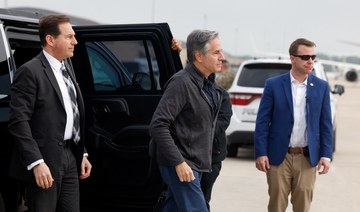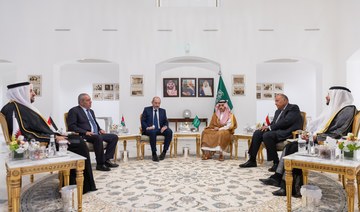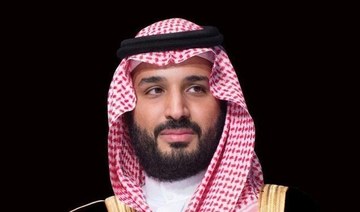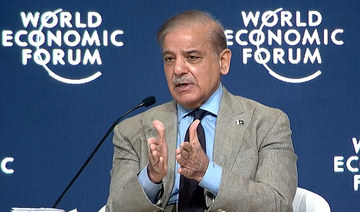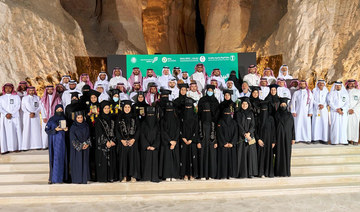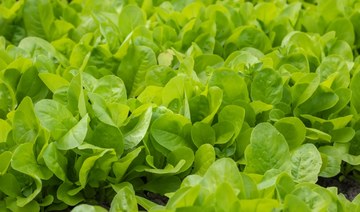RIYADH: Dr. Peter Feldhaus is the new CEO of the thyssenkrupp Industrial Solutions, which is currently building the largest cement plant in Saudi Arabia. Dr. Feldhaus has outstanding strategic skills in various sectors.
On the occasion of the German National Day, Dr. Feldhaus spoke with Arab News, on a range of subjects, mainly the growing presence of thyssenkrupp in Saudi Arabia in particular and in the Middle East and North Africa (MENA) region in general. He also focused on the Saudization of the workforce, thyssenkrupp’s plans to support the country’s Vision 2030 and the thyssenkrupp’s internal transformation program called “planets,” which is designed to make this giant German company more efficient, innovative and far ahead of its peers in the world.
Underlining the significance of German ties with Saudi Arabia, Dr. Feldhaus said: “The Kingdom is specifically a key growth country for us, and hence my current visit is to acquaint myself with the Saudi business environment, talk to customers and also to government officials.”
On the SR4.2 billion ($1.12 billion) Yamama Cement Project, he said it is the largest cement plant ever to be built here. “We are making very good progress on the implementation of the project. Yamama Saudi Cement Company has appointed thyssenkrupp to build two turnkey cement production lines with a total capacity of 20 000 tpd. The plants are being built at a new site about 80 km east of Riyadh,” he said.
“Our partnership with Yamama is built on a longstanding tradition and dates back many decades… We are delighted that Yamama is once again putting its faith in our comprehensive experience in the turnkey construction of complete cement plants worldwide. With our reliable, highly efficient technologies, we are profiting from infrastructure expansion in many growth regions and at the same time contributing to the conservation of valuable resources. thyssenkrupp Industrial Solutions is carrying out the contract on an EPC (Engineering, Procurement, Construction) basis. Its scope of supply includes all components for the new lines, from raw material preparation to clinker manufacture to cement loading. The main components include two mobile primary crushers for limestone, three crushers for additives, two crushers for correctives, as well as two circular blending beds for limestone, and various additive storage facilities. The new lines are scheduled to start operation in 2018,” he said.
Vision 2030
On plans to visualize cooperation within the framework of the Saudi Vision 2030, Feldhaus said: “The Vision 2030 is an interesting and fascinating set of framework. thyssenkrupp Industrial Solutions can play a major role in it. We are much broader in terms of our product spectrum. Saudi Arabia has put more focus on mining, which is also an important specific part of the Vision 2030. Our experience in mining is unmatched and unparalleled. As one of the few full-line suppliers worldwide, we are reliable partners to demanding customers, offering them tailored, cost-efficient and responsible solutions for mining, processing, handling raw materials.
“Our services include designing and building individual machines and complete installations as well as modernizing and upgrading existing systems. From low-cost standard machines to custom systems for extreme conditions — our solutions satisfy all requirements and create lasting value for our customers. To optimize our mining solutions, we use the high-precision, extremely robust radar technology, e.g. for positioning or for volumetric scans.”
Giving a detailed report of the mega projects currently being executed by his company in the MENA region and in the extended neighborhood including GCC countries, the thyssenkrupp Industrial Solutions CEO said: “We have had several projects in the region. We have supplied mining equipment to the Ma’aden.”
The company, he said, has completed the Safwa project in Eastern Province of the Kingdom. In Egypt, thyssenkrupp Industrial Solutions will be building a nitric acid plant as well as an ammonium nitrate plant for Abu Qir Fertilizers. The project will start by the beginning of next year, and the contracts will be concluded soon.
In fact, MENA is a very diverse region and offers many opportunities for thyssenkrupp. It covers 70 countries with different cultures, political and economic maturity. Young populations and dynamic societies create the need for industrial products and services that offer sustainable solutions. This is where thyssenkrupp as a diversified industrial company comes in. “In the region we are particularly strong in Elevator Technology and Industrial Solutions businesses, but present also with Components Technology & Materials Services. In the 2015/16 fiscal year, sales in the region amounted to around €2.4 billion. That’s something our approximately 4,300 Thyssenkrupp employees in the region can be proud of. Our regional headquarters are in Istanbul, Turkey.”
Feldhaus thinks his new technology and services are designed to drive efficiency and competitiveness especially in downstream industry in the Middle East region.
Giving a broad view of it, he said thyssenkrupp Industrial Solutions has a line of new technologies and services, which are designed to drive efficiency and competitiveness in the downstream industry in the Middle East. Most of the operation and maintenance programs for the existing plants until now are focused on supervising and executing linear updates and technological exchanges. However, asset management has to go even further and be integrated into the plants’ management and engineering processes, to be able to boost a plant’s efficiency. Combined, engineering competence, plant building experience and integrated asset management help unlock unutilized capabilities and improve the overall performance and efficiency to achieve higher performance and profit margins. “We have been in this region for more than 150 years. We are developing solutions that enable the energy and industrial sectors to operate at their full potential. We are heavily investing in our electro chemical technologies, which will help energy storage,” he said.
“We are in general working on optimizing the energy efficiency and ecology of our plants and technologies. For example for our cement plants, where we are reducing the energy consumption and greenhouse gas emissions.”
On reorganizing the company as part of the transformation program “planets,” Feldhaus explained the changes after reorganization and culture change within the business area, saying “With planets we strategically transform our business area Industrial Solutions. We are setting Industrial Solutions up for future success.” The aim, he said, is to secure growth by increasing competitiveness, focusing more strongly on customers and markets — including a strengthened regional footprint — as well as on expanding our service business. One key element of this is driving cultural change within the business area.
On working for the nationalization (Saudization) of workforce in his Saudi operations and the initiatives that thyssenkrupp has taken to train and employ young Saudis, the CEO said: “We are generally increasing our local capabilities in the Kingdom of Saudi Arabia.”
To achieve this, the company supports the Saudi Arabian engineers program, as part of which Saudis study at German universities, he said.
“Until today, we have already trained 15 of those highly qualified engineers on the job at our technology centers in Germany after their studies. All of them are now working for thyssenkrupp in Riyadh. We encourage and welcome Saudi graduates to apply at our company as we are looking to hire more Saudis in the months and years to come.”
We are increasing our local capabilities in Kingdom to help Saudization
We are increasing our local capabilities in Kingdom to help Saudization
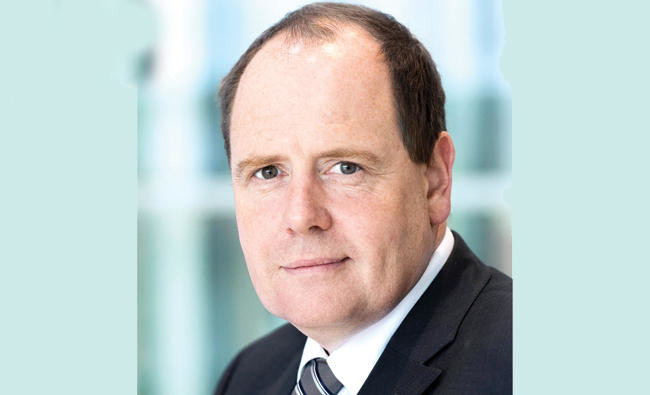
Saudi authorities issue severe weather warning
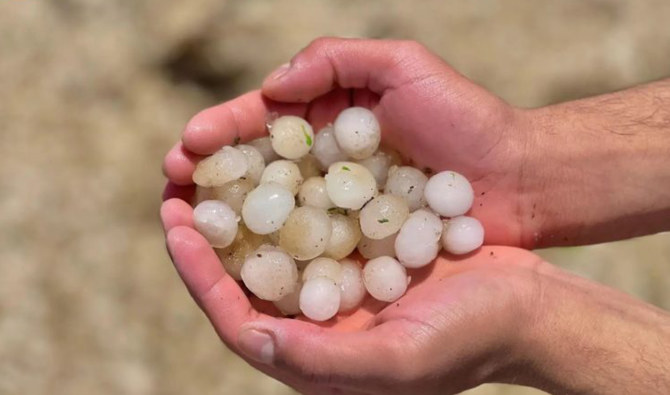
- Schools, universities in some regions switch to remote learning after storms, high winds forecast
RIYADH: Saudi authorities warned residents that most parts of the Kingdom will experience severe weather until Friday.
The National Center of Meteorology on Monday forecast moderate-to-heavy rain in the Madinah, Makkah, Jeddah, Baha and Najran regions, accompanied by high winds, hail and thunder.
Saudi Arabia’s General Directorate of Civil Defense also issued severe weather warnings accompanied by safety instructions as the country braces for heavy rainfall in coming days.
The Civil Defense said that most parts of the Kingdom will experience moderate-to-torrential thundershowers, accompanied by strong winds, until Friday.
Regions to be affected include Asir, Baha, Makkah, Madinah, Jazan, Qassim, Jouf, Hail, Tabuk, Northern Borders, Riyadh and the Eastern Province.
The General Directorate of Civil Defense has urged people to take precautions, remain indoors during stormy weather, and adhere to its instructions.
Schools in Jeddah, Makkah and Madinah regions switched to online classes through the Madrasati remote-learning platform on Monday after authorities warned of storms and possible floods this week.
The King Abdulaziz University in Jeddah, University of Jeddah, University of Taif, and Umm Al Qura University in Makkah were closed on Monday and postponed scheduled exams until further notice.
Taibah University in Madinah and Saudi Electronic University’s branch in Jeddah also suspended in-person classes on Monday, and switched to remote learning.
Jeddah Municipality implemented a field plan to deal with the weather conditions, and urged residents to show caution and stay away from flooded areas.
Bandar bin Saleh Al-Hadiya, director of the Ministry of Environment, Water and Agriculture branch in the Northern Border region, inspected dam safety in Arar ahead of the rainy situation.
Riyadh region was also hit by a heavy sandstorm accompanied by high winds on Sunday night, leaving the city skyline enveloped in dust.
On Monday, the NCM issued a red alert for dust storms in parts of the Riyadh region, including the capital, and Al-Aflaj, Al-Sulail and Wadi Al-Dawasir governorates.
GCC holds Gulf-US Joint Ministerial Meeting to advance regional security
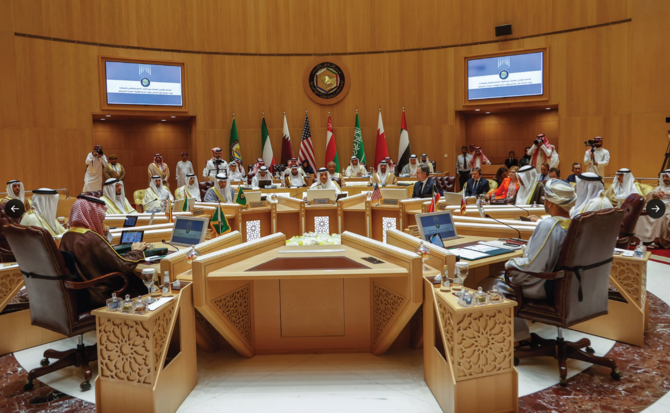
- In Riyadh, Blinken is expected to meet with senior Saudi leaders and hold a wider meeting with counterparts from five Arab states
RIYADH: Secretary Anthony Blinken participated in a joint US-Gulf Cooperation Council ministerial meeting to advance coordination on regional security on Monday in Riyadh.
“There really are two paths forward for the region as a whole. One driven with division with destruction, with violence with permanent insecurity. The other, greater integration, greater security, greater peace,” Secretary Anthony Blinken said.
“ I think the region today shows that many more of us want to pursue that affirmative path, and I’m grateful to our colleagues in the GCC for working in partnership to advance in that direction,” he added.
During his opening remarks, Secretary Blinken expressed that the meeting serves as an opportunity to advance efforts to promote greater stability in this region.
Blinken arrived in Riyadh Monday morning as a part of a 3-day visit from April 29-May 1 to meet with regional partners.
The secretary highlighted that in the upcoming days as he travels to Jordan and Palestine he will meet with humanitarian groups and the Israeli governemnt to discuss the developments in Gaza.
During his remarks Secretary Blinken highlighted the current U.S. interventions such as the increased value of aid delivered to Gaza and the building of the US maritime corridor.
“It is not enough we still need to get more aid in and around Gaza,” he explained.
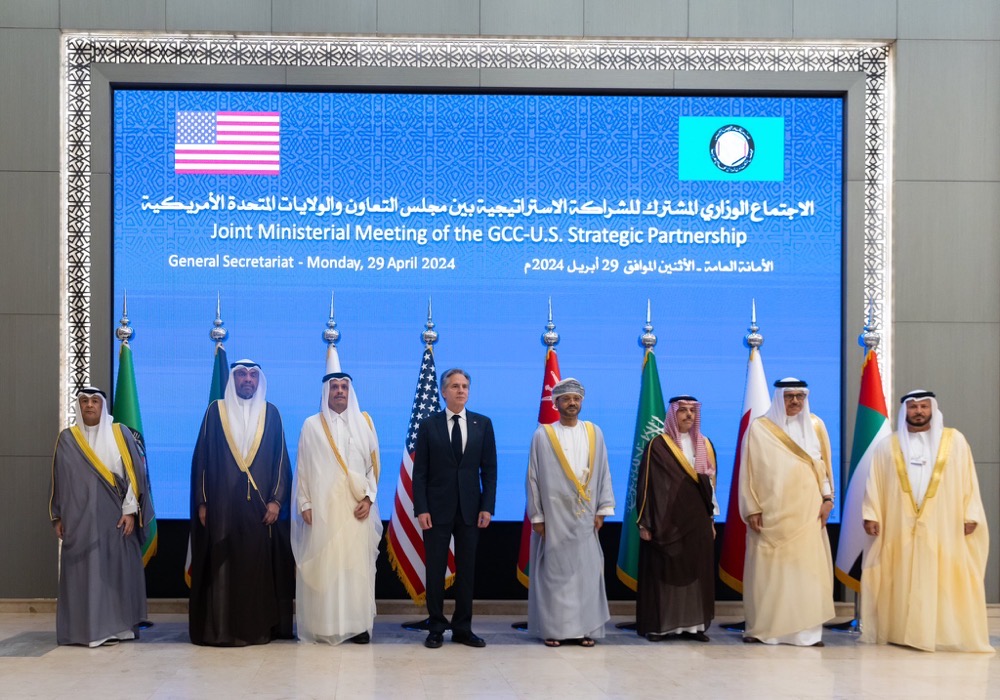
During his speech, Blinken underlines that the U.S. will continue to work with its GCC partners to “build just and lasting peace.”
“We are focused on addressing the greatest threat to regional stability and regional security, Iran,”
“ This is the first meeting since Iran’s unprecedented attack on Israel, The first direct attack from Iran to Israel with more than 300 projectiles including over 100 holistic missiles," Blinken explained.
Blinken underlined that the attacks from Iran stress the importance of working together in integrated defense.
He highlighted that this will be the discussion topic in the upcoming US-GCC meeting in a few weeks on integrated air, militry defense and maritime security.
The other discussion topic underlined by Blinken was the “ ways to preserve freedom of navigation in the Red Sea,”
“The Houthi attacks not only undermine security but they undermine the lives and livelihoods of people throughout the region including in Yeman, the very people they profess they want to represent, The cost of goods have gone up, and it’s harder to get things into Yemen, to the north we’re people so desperately need it,”
“This needs to stop and we are being resolute in doing everything we can to put a stop to it,” Blinken sid.
During his opening remarks, the GCC Secretary-General Jassim Al-Budaiwi called for an immediate ceasefire in Gaza and called for an international conference on implementing a two-state solution.
He also underlined the need for effective international measures to end the violence in the West Bank.
He also expressed the importance of ensuring the security of relief corridors for the delivery of humanitarian aid.
Al-Budaiwi emphasized that the continuous escalation between Iran and Israel threatens the security and stability of the region.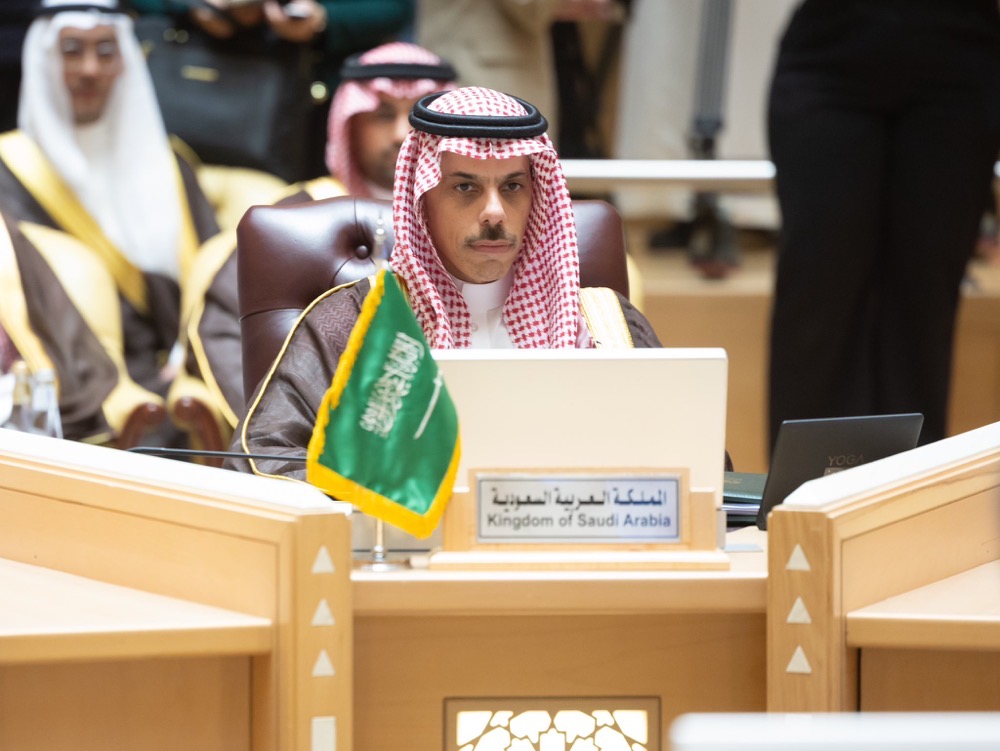
The GCC Secretary General also expressed concern over the Houthi attacks on the Red Sea.
Following his visit to the Kingdom, Blinken will be meeting with counterparts in Jordan and Palestine.
As a part of his visit, the secretary will discuss various topics including the ongoing efforts to achieve a ceasefire in Gaza that secures the release of hostages.
Other topics in the meetings will include humanitarian aid to Gaza, limiting the spillover of conflict and ongoing efforts to achieve regional security.
A pathway to an independent Palestinian state with security guarantees for Israel will also be one of the topics of discussion during his visit.
On the sidelines of the meeting, The Saudi Minister of foreign affairs, Prince Faisal bin Farhan met with Secretary Blinken. The two discussed the developments in the Gaza Strip, the importance of a ceasefire, efforts to ensure entry of urgent humanitarian aid, and joint efforts.
Saudi FM discusses two-state solution with French, Turkish counterparts
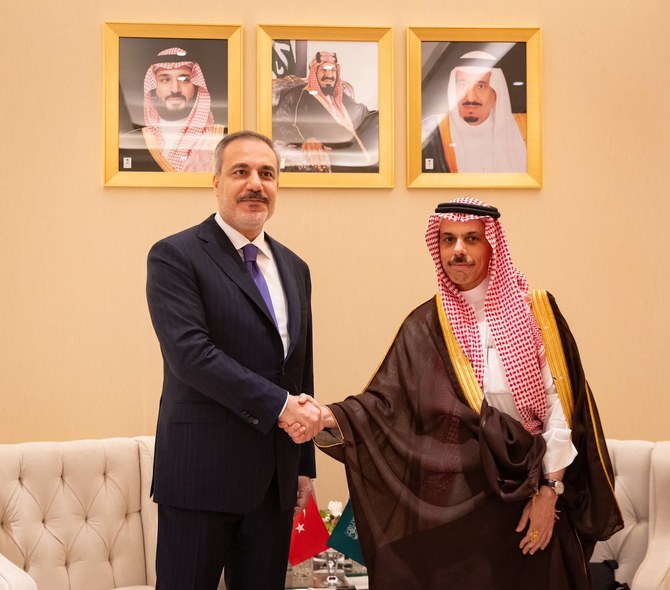
- The discussions took place on the sidelines of a ministerial consultative meeting to discuss Gaza war
RIYADH: Saudi Foreign Minister Prince Faisal bin Farhan held talks with his French and Turkish counterparts on Monday.
The discussions took place on the sidelines of a ministerial consultative meeting of the six-party Arab Committee to discuss developments in the Gaza war, the Saudi Press Agency reported.
Talks with Hakan Fidan of Turkiye and Stephane Sejourne focused on coordinating efforts to advance the two-state solution and acknowledge the Palestinian state, SPA added.
Saudi crown prince receives world officials after WEF special meeting in Riyadh
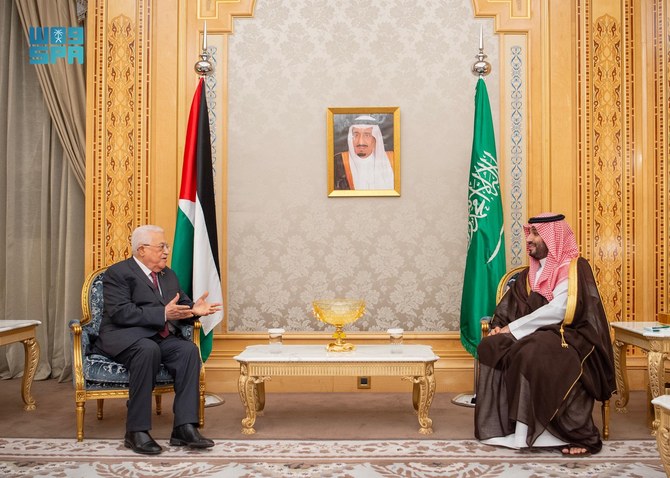
- Two-day special meeting of the World Economic Forum ended on Monday
RIYADH: Saudi Crown Prince Mohammed bin Salman received officials from around the world in Riyadh after a special meeting of the World Economic forum ended on Monday.
The officials included Palestinian President Mahmoud Abbas, US Secretary of State Antony Blinken, British Foreign Secretary David Cameron, the Prime Minister of Malaysia Anwar Ibrahim, and the Prime Minister of Pakistan Shehbaz Sharif.
The officials attended the two-day special meeting during which the crown prince called for global collaboration to help build a more resilient and integrated global economy.
Blinken is visiting the Kingdom on his seventh trip to the Middle East since the Oct. 7 Hamas attack on Israel, which responded with a relentless offensive in Gaza that has drawn global criticism.
Saudi Arabia, UNEP launch World Environment Day campaigns
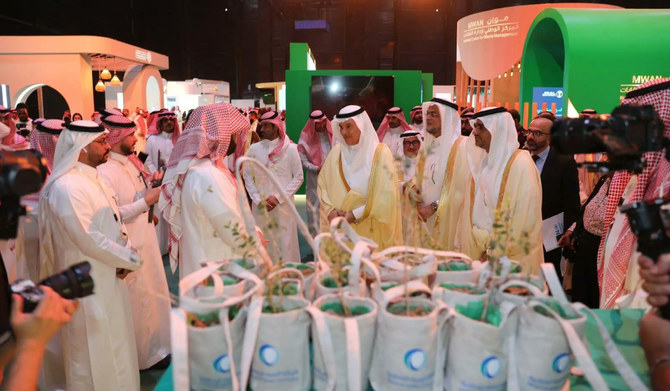
- Faqeeha noted that on the occasion of World Environment Day, Saudi Arabia will shed light on the urgent need for global investments in conserving nature, restoring lands, and working toward sustainability
RIYADH: Saudi Arabia and the UN Environment Programme have announced campaigns to combat desertification, restore ecosystems, and strengthen drought resilience ahead of World Environment Day celebrations on June 5 in Riyadh.
The announcement was made at the opening of Saudi Arabia’s Environment Week on Sunday, the Saudi Press Agency reported.
Saudi Minister of Environment, Water, and Agriculture Abdulrahman Al-Fadhli inaugurated the annual event that aspires to raise awareness of the importance of environmental protection.

During the event, Deputy Minister for Environment Osama Faqeeha emphasized the shared responsibility in addressing land degradation and combating desertification. This responsibility extends to policymakers, the private sector, and civil society organizations globally, who must work together to restore agricultural areas, rehabilitate land, and tackle desertification and drought, he said.
Faqeeha noted that on the occasion of World Environment Day, Saudi Arabia will shed light on the urgent need for global investments in conserving nature, restoring lands, and working toward sustainability.
This year, we are calling on people — from the grassroots to governments — to help tackle the climate and extinction crisis we face by restoring the ground we depend on for survival.
Elizabeth Mrema, Deputy executive director, UNEP
He highlighted the importance of uniting national and international efforts to safeguard and rehabilitate ecosystems across the globe, aiming to fulfill sustainable development objectives.
“Without action, 95 percent of land on Earth could be degraded within the next 30 years, which could spell disaster for humanity and the planet,” said Elizabeth Mrema, deputy executive director of UNEP, launching the global campaign at a Saudi Environment Week event in Riyadh.
“We have seen how previous campaigns have catalyzed climate action across the globe. This year, we are calling on people — from the grassroots to governments — to help tackle the climate and extinction crisis we face by restoring the ground we depend on for survival,” she added.
Countries worldwide have committed to restoring 1 billion hectares of land, aiming to protect 30 percent of land and sea for nature and restoring 30 percent of the planet’s degraded ecosystems.
Supporting the UN 2030 Agenda for Sustainable Development, World Environment Day 2024 will boost climate action efforts by gathering support for ecosystem restoration.
At the opening event of the Saudi Environment Week, Al-Fadhli emphasized that achieving the goals of environmental protection and conservation of the Kingdom’s natural resources requires active engagement from governmental and private sectors, as well as individuals.
He stressed the significance of adopting eco-friendly behaviors in daily routines and applying these practices across different sectors to reach sustainable development objectives.
“The continuation of this national event annually in the Kingdom reflects our wise leadership’s dedication to environmental protection and commitment to sustainable development, in line with the goals of Saudi Vision 2030,” Al-Fadhli said.
“Moreover, the Kingdom’s dedication to environmental protection is evident at national, regional, and international levels. This is demonstrated by Saudi Arabia’s active participation in numerous environmental agreements and organizations, as well as its … initiatives like the Middle East Green Initiative and other significant global environmental efforts under the G20 umbrella,” he added.


